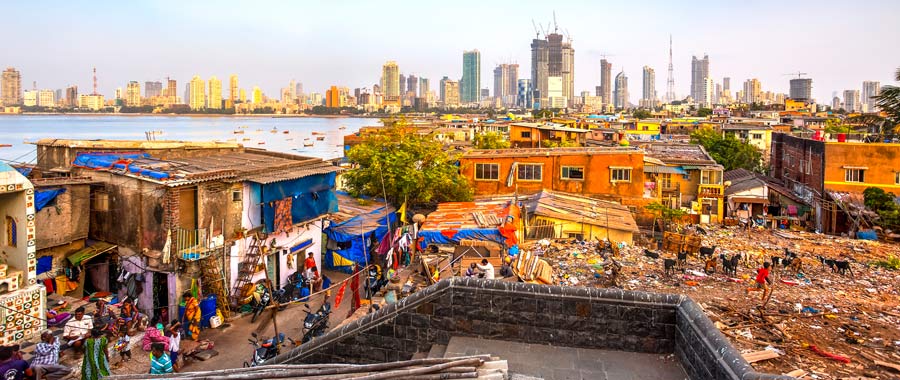Human society, much like a finely attuned orchestra, is composed of diverse instruments, each contributing to the harmonic resonance of collective existence. Yet, when certain instruments dominate and others fall silent, the symphony becomes discordant. Within the framework of Bahá’í teachings, the urgent call to eliminate the extremes of wealth and poverty emerges as a moral imperative—an essential ethos that resonates through the annals of history and seeks to establish equilibrium in the social fabric.
The phenomenon of wealth disparity is akin to a chasm that divides a vibrant landscape. On one side reside the affluent, basking in the abundance of resources, while on the opposite side, the impoverished grapple with the barest essentials for survival. This juxtaposition is not merely an economic statistic; it embodies a stark moral challenge. The Bahá’í teachings posit that this divide undermines the very essence of human dignity. Rather than mere observers of this injustice, individuals are called to be agents of transformation, dismantling the barriers that perpetuate social inequity.
A distinctive aspect of Bahá’í thought is its holistic approach to societal challenges. The teachings underscore that eliminating poverty is not solely an economic endeavor but a multifaceted moral undertaking. It challenges the prevailing mindset that views wealth accumulation as an end in itself. Instead, there exists a compelling notion that material wealth should be viewed as a responsibility. The affluent are custodians of their resources; they are charged with the ethical duty to cultivate a nurturing environment for all. The principle of “Wealth is a trust” invites a reframing of individualistic pursuits, encouraging a collective ethos where prosperity serves the greater good.
The metaphor of light serves as a poignant illustration in understanding wealth and poverty. Just as light can illuminate the darkest corners, so too can the sharing of resources foster enlightenment in communities. A society that allows darkness—be it ignorance, poverty, or despair—to prevail diminishes the prospect of progress for all. The Bahá’í teaching of unity emphasizes that the welfare of one is intrinsically linked to the welfare of all. Consequently, a community that flourishes with equitable distribution of resources shines brightly, while one riddled with extremes remains in the shadows, lacking the illumination of hope and opportunity.
To contemplate the moral imperatives surrounding wealth and poverty, one must engage deeply with the principles of justice and equity enshrined within Bahá’í doctrine. Justice, often heralded as a cornerstone of societal harmony, is manifest in the equitable distribution of resources. The teachings invite adherents to foster a sense of global responsibility, where the prosperity of one nation does not eclipse the plight of another. In doing so, it dismantles barriers, uniting humanity in a common endeavor: the eradication of poverty and its associated indignities.
Moreover, the phenomenon of extreme wealth can be likened to a wildfire—capable of generating both prosperity and destruction. The Bahá’í perspective maintains that unchecked affluence leads to societal malaise, echoing the sentiment that “the rich have responsibilities to the poor.” This perspective is reinforced by the notion that wealth should be a catalyst for social improvement rather than an instrument of oppression. Engaging the wealthy in philanthropic endeavors transforms their fortunes into beacons of hope. It is through deliberate action that the potential for economic disparity to devolve into social unrest can be mitigated.
In an academic discourse on the elimination of extremes of wealth and poverty, one cannot overlook the prophetic vision that undergirds such a mission. The Bahá’í teachings propose a shift in paradigm—advocating a transition from competition to cooperation. Inspired by the notion that “the earth is but one country and mankind its citizens,” this holistic approach sees poverty not as an isolated affliction but as a collective challenge demanding collaborative solutions.
When compelling the discourse on wealth distribution, one comes face-to-face with the intricate web of systemic issues embedding poverty into society. It is not merely a consequence of individual mismanagement; rather, it is intricately linked to broader economic structures, social hierarchies, and political decisions. Bahá’í teachings illuminate the pathway towards more integrated approaches to policy-making, advocating for systems that prioritize fairness and compassion.
Education emerges as another fundamental facet of this dialogue. The encroachment of poverty often restricts access to quality education, perpetuating a cycle of deprivation. The teachings emphasize that the empowerment of individuals through education can illuminate paths out of poverty. This principle resonates deeply with the understanding that knowledge serves as both a shield and a sword—protective against ignorance and destructive forces, while simultaneously expediting empowerment and agency.
As we navigate the complex terrain of wealth and poverty, it becomes evident that the objectives set forth by Bahá’í doctrine extend beyond mere economic disparities. They herald a transformative vision for humanity, entwining ethics with action, and inspiring collective stewardship over a shared future. The moral imperative resonates as a clarion call: to act. To embrace the essence of Elizabeth Barrett Browning’s poetic reflection, “The greatest thing in life is love,” we may posit that one of the greatest responsibilities of life is the commitment to eliminate extremes of wealth and poverty.
In summary, the Bahá’í teachings provide a compelling framework for addressing the urgent moral necessity to eradicate the extremes of wealth and poverty. Through a lens of unity, justice, and shared responsibility, these teachings advocate for a society where every individual can thrive with dignity. As humanity stands at a crossroads, the call to engage with these principles is resonant and poignant—a reminder that the integrity of our collective narrative is inextricably linked to our responsiveness to the plight of the marginalized and the ethical manner in which we wield our resources.
